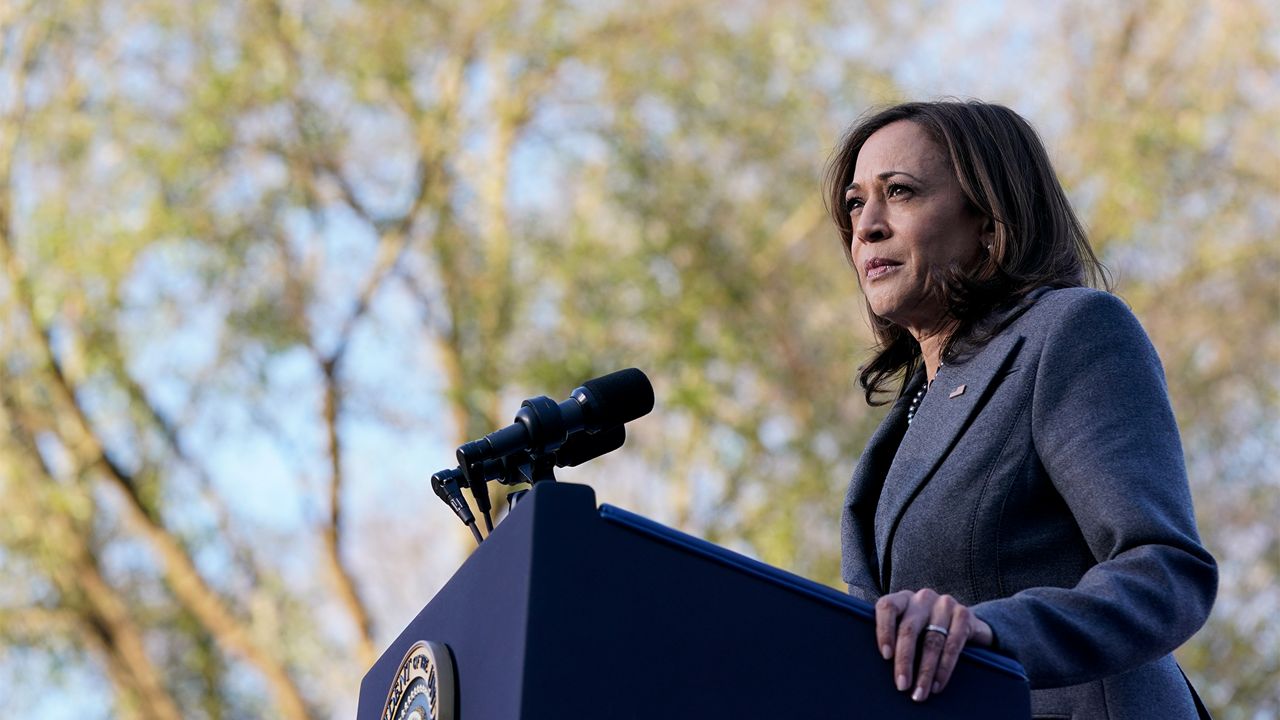SAN BERNARDINO, Calif. (AP) — After a difficult first year in office, Vice President Kamala Harris enjoyed a homecoming of sorts Friday, taking a helicopter tour in Southern California mountains to highlight new funding for federal wildfire programs.
She was joined by Gov. Gavin Newsom and California Sen. Alex Padilla — both Harris' friends and fellow Democrats — on a day when they inspected wildfire damage from the sky, visited a federal fire station where they heard about the increasing risk of destructive blazes and outlined new spending aimed at reducing the risk of wildfires and dealing with their aftermath.
She also announced $600 million in disaster relief funding for the U.S. Forest Service in California.
In brief remarks, the vice president hailed the work of firefighters and credited collaboration between governments "unencumbered by politics," an apparent reference to past friction between heavily Democratic California and the Trump administration.
She said the government is "putting the resources where they are needed" in the battle against fires and climate change.
Harris' first year in office was framed by the pandemic, a fruitless battle over voting rights legislation and an immigration crisis at the border. The trip to her home state gave Harris a chance to revel in hearty applause. She and the Biden administration were praised repeatedly for their direction on wildfires and the climate.
U.S. Agriculture Secretary Tom Vilsack called her leadership "unmatched."
Harris' visit comes at a time when President Joe Biden's approval rating is sliding, and Democrats are at risk of losing control of the House and Senate in the 2022 midterm elections, and Harris continues to struggle to define her role in the administration.
Her office highlighted recent legislation that provided $1 billion to create plans to help defend communities from wildfires. There also is $650 million for rehabilitation efforts for burned areas and nearly $2.4 billion for hazardous fuels management.
Earlier this week, the Biden administration said it will expand efforts to fight wildfires by thinning forests around "hot spots" where nature and neighborhoods collide.
As climate change dries out the U.S. West, administration officials said they have crafted a $50 billion plan to more than double the use of controlled fires and logging to reduce trees and other vegetation that serves as tinder in the most at-risk areas. Only some of the work has funding so far.






